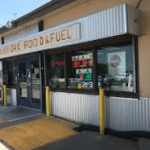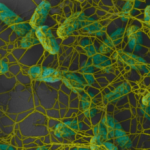fasdf@sadf.tu
Updates: Botulism in Nacho Cheese, Salmonella in Maradol Papaya, Listeria in the Environment, and Our New Trending Page
California Department of Public Health confirms that botulism outbreak was Linked to Retail Practices In May we reported on a Botulism outbreak resulting from the consumption of nacho cheese sauce served at the Valley Oak Food and fuel gas station in Walnut Grove, California. The outbreak included 10 cases of laboratory confirmed C. botulinum toxin type A. All patients were hospitalized and one death was reported. Customers spread the nacho cheese sauce on chips from a counter-top self-service warming dispenser. According to a memo from the California Department of Public Health, the operators at the gas station were mainly responsible for the outbreak because...
fasdf@sadf.tu
How Listeria monocytogenes can survive in extreme environmental conditions
It is difficult to eliminate L. monocytogenes from post processing contamination of food production lines since this pathogen is common in various environments outside processing plants, and can endure in food processing environments. It is one of the main concerns in environmental monitoring due to its ability to survive strict cleaning conditions and remain in the plant environment for months or even years. Listeria monocytogenes has better survival ability than most other food pathogens, resulting in the colonization of Listeria in food processing environment. L. monocytogenes is capable of adapting to a variety of stress conditions, including pH variations, cold temperature, low water activity,...
fasdf@sadf.tu
Food Recalls due to Listeria monocytogenes in the News Again
As we reported earlier Listeria monocytogenes was a major reason for recalls according to “summary of recall cases in Calendar Year 2016”, by the FSIS/USDA, accounting for over 80% of the pathogen recall cases. Currently, this trend is continuing, with many recalls due to L. monocytogenes. Hillcrest Dairy in Moravia NY The New York State Department of Agriculture urged consumers in Cayuga County not to consume raw milk cheeses (“Old Fashioned Raw Milk Monterey Jack,” “Horseradish Monterey Jack,” and “Chipotle Adobo Monterey Jack”) made by Ripley Dairy LLC, from Moravia, New York because they might be contaminated with Listeria. The products are packaged in a plastic shrink-wrapped and marked...
fasdf@sadf.tu
Biofilm and food safety: What is important to know?
Part 2: What are the best control strategies? Dr. Bassam A. Annous, Eastern Regional Research Center, USDA–ARS–NEA, and Dr. Ruth Eden, BioExpert. Biofilms are usually formed in a wet environment and in the presence of nutrients. Once biofilms are formed, the cleaning of the food and food contact surfaces becomes more difficult to remove the extracellular polymeric substances (EPS). Therefore, prevention of biofilm formation, using regularly scheduled cleaning and disinfecting protocols is an important first step in preventing cells from attaching and forming biofilms on surfaces. High-temperature washing can reduce the need for the physical force required to remove biofilms....




